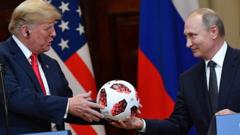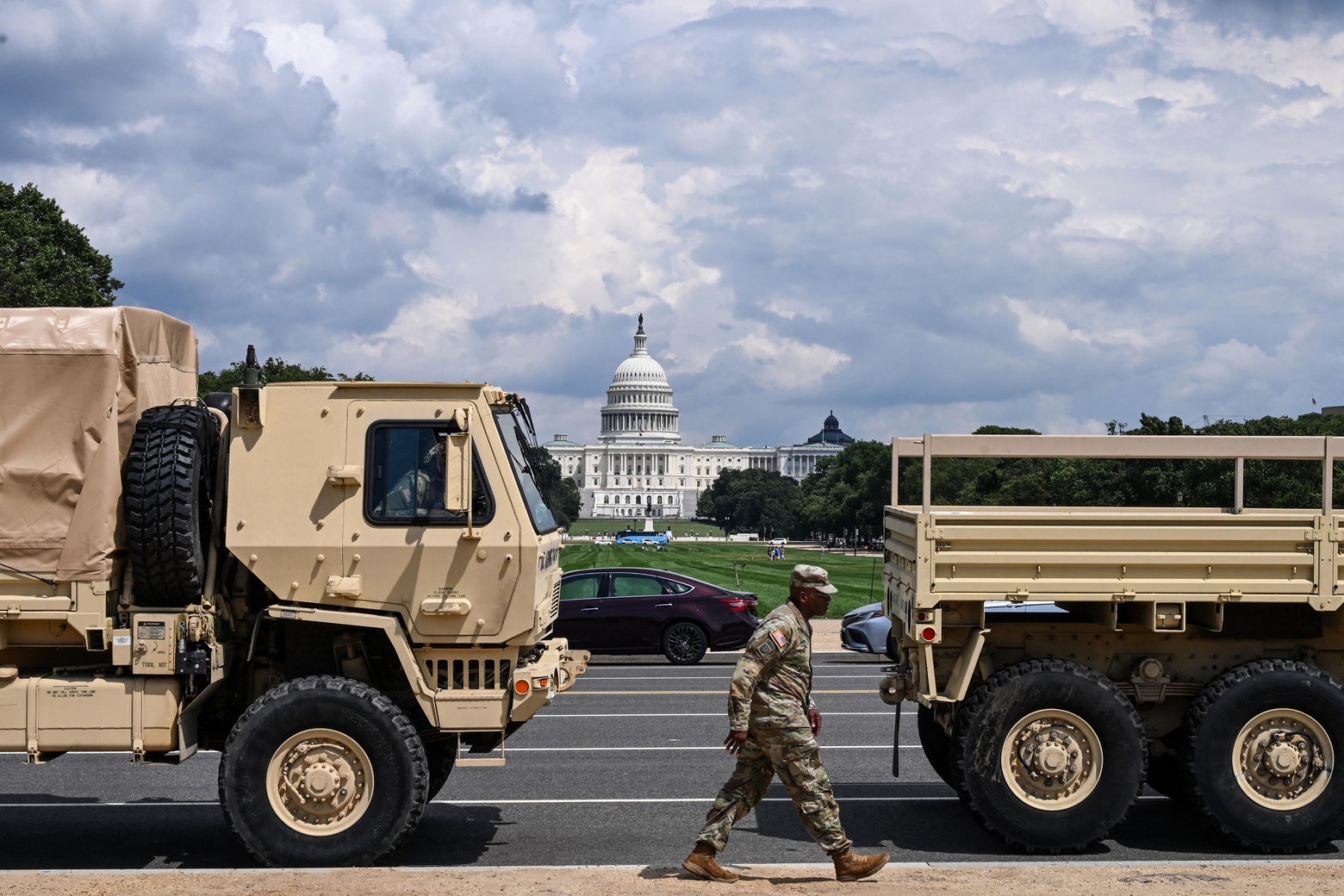What Can We Expect from Trump and Putin's Upcoming Meeting?

Understanding the Dynamics of Trump and Putin's Meetings
The interactions between U.S. President Donald Trump and Russian President Vladimir Putin have been a focal point in international relations, stirring intrigue and speculation. Their meetings have generated headlines, revealing not only political agendas but also the unique personal dynamics between the two leaders. As we reflect on their past encounters, it becomes evident that their approaches to diplomacy are shaped by their distinct backgrounds, experiences, and personal styles. This article delves into their meetings, exploring the implications for global politics, particularly in light of the ongoing conflict in Ukraine.
The First Encounter: G20 Summit 2017
Trump and Putin's inaugural meeting took place in July 2017 during the G20 summit in Hamburg, Germany. This meeting occurred just months after Trump assumed office, while Putin had already amassed considerable political experience over his decades-long tenure. Their initial interactions were characterized by a cordial atmosphere, marked by a handshake and polite exchanges in front of international media. This meeting set a precedent for what many hoped would be a constructive relationship.
During this first meeting, the topic of Ukraine was a significant point of discussion. Trump raised concerns about Russia's actions in the region, particularly its annexation of Crimea in 2014. This early acknowledgment of Ukraine's plight hinted at the complexities that would define their relationship moving forward. As the conflict in Ukraine has escalated, Trump's role as a potential peacemaker has become increasingly pivotal.
Continuing Conversations: Economic Forum in Vietnam
Later that same year, Trump and Putin met again at an economic forum in Vietnam. This encounter, set against a backdrop of global leaders, showcased the two leaders in a lighter setting, yet the dynamics remained complex. Observers noted Putin’s penchant for dominating conversations, often leading to lengthy monologues that left little room for response from Trump. This conversational style highlighted the power dynamics at play, as Putin utilized his experience to maintain control over discussions.
Diplomats who have interacted with both leaders often describe the unpredictability of such meetings. Former UK Ambassador to Russia, Sir Laurie Bristow, emphasized that everything in meetings with Putin revolves around power. The timing, substance, and tone are all controlled by him, making it a challenge for his counterparts to navigate the discussions effectively.
Helsinki Summit: A Controversial Moment
The pinnacle of their public interactions occurred during the Helsinki summit in July 2018. This meeting became infamous when Trump publicly sided with Putin over U.S. intelligence agencies regarding allegations of Russian interference in the 2016 presidential election. This act of allegiance sparked widespread backlash from both sides of the political spectrum, illustrating how personal relationships can sometimes overshadow national interests.
One of the more memorable moments from Helsinki was Putin gifting Trump a football, a gesture that was viewed as a calculated move to foster goodwill. Such displays, while seemingly innocuous, are often laden with meaning in diplomatic contexts. Sir Tony Brenton, a former British ambassador to Russia, noted that while Putin may appear friendly, there is always a layer of reserve beneath his demeanor. This duality reflects Putin's strategic approach to international relations.
Subsequent Meetings: G20 Summits in Argentina and Japan
The two leaders continued their dialogue in subsequent G20 summits held in Argentina in November 2018 and Japan in June 2019. Each meeting further highlighted their contrasting styles. John Bolton, Trump’s former national security adviser, observed that while Putin approached discussions with meticulous preparation and composure, Trump often relied on spontaneity, which could lead to unexpected remarks that surprised even his aides.
This dichotomy in their meeting styles raises questions about the effectiveness of their conversations. While Trump believed that a friendly rapport could translate to diplomatic success, Putin’s KGB training allowed him to manipulate situations to his advantage. This manipulation often led to Trump unwittingly ceding ground on critical issues, a dynamic that could have long-term implications for U.S.-Russia relations.
Current Context: The Ongoing Conflict in Ukraine
Fast-forward to 2025, the conflict in Ukraine has continued to dominate the geopolitical landscape. Trump has positioned himself as a potential mediator, expressing a desire to negotiate a ceasefire. His recent comments regarding "very severe consequences" for Putin if the war does not end demonstrate a shift in tone, reflecting the gravity of the situation.
As both leaders prepare for their meeting in Alaska, the stakes are higher than ever. The world watches closely, anticipating how their established rapport will influence the discussions about Ukraine. Will Trump’s softer approach yield results, or will Putin’s strategic manipulation prevail? The outcome remains uncertain, but the implications for global stability are profound.
The Role of Personal Dynamics in Diplomacy
The relationship between Trump and Putin underscores a broader theme in international diplomacy: the interplay of personal dynamics and political agendas. Their meetings highlight how individual characteristics can shape the course of international relations. Trump's informal, sometimes impulsive style contrasts sharply with Putin's calculated and controlled approach, creating a unique and often unpredictable diplomatic environment.
Moreover, the history of their interactions raises important questions about the effectiveness of personal diplomacy. While personal relationships can foster cooperation, they can also lead to misunderstandings and miscalculations. As seen in the past, moments of camaraderie can quickly shift to confrontation, depending on the context and the issues at hand.
Conclusion: The Future of U.S.-Russia Relations
As Trump and Putin prepare for their upcoming summit, the world remains on edge, considering the potential ramifications of their meeting. The interplay of personal dynamics, historical context, and the ongoing conflict in Ukraine will undoubtedly shape the discussions. As we look forward, it is essential to reflect on how these leaders navigate their relationship and the impact it has on global politics.
In conclusion, the meetings between Trump and Putin serve as a microcosm of the complexities of international relations. The personal rapport they share may influence their decisions, but the underlying geopolitical realities will ultimately dictate the outcomes of their interactions. As we observe their evolving relationship, one must ponder: can diplomacy thrive in an era defined by personal alignments and strategic maneuvering?
Frequently Asked Questions
What were the main topics discussed in Trump's first meeting with Putin?
During their first meeting at the G20 summit in 2017, Trump raised concerns about Russia's actions in Ukraine, specifically the annexation of Crimea. This topic set the stage for their future interactions regarding the conflict.
How do Trump and Putin's meeting styles differ?
Trump tends to approach meetings with spontaneity and a casual demeanor, whereas Putin is characterized by meticulous preparation and a commanding presence, often dominating conversations.
What impact did the Helsinki summit have on U.S.-Russia relations?
The Helsinki summit in 2018 was controversial, as Trump sided with Putin regarding U.S. intelligence assessments. This led to bipartisan criticism in the U.S. and highlighted the risks of personal diplomacy overshadowing national interests.
What is the current state of the conflict in Ukraine?
The conflict in Ukraine continues, with ongoing debates about ceasefire negotiations. Trump's recent comments indicate his intention to play a mediating role, although the outcome remains uncertain.
As we reflect on the past and consider the future, one question remains: how will the evolving dynamics between these two powerful leaders impact global peace and stability? #Trump #Putin #Diplomacy
Published: 2025-08-14 22:42:06 | Category: wales



